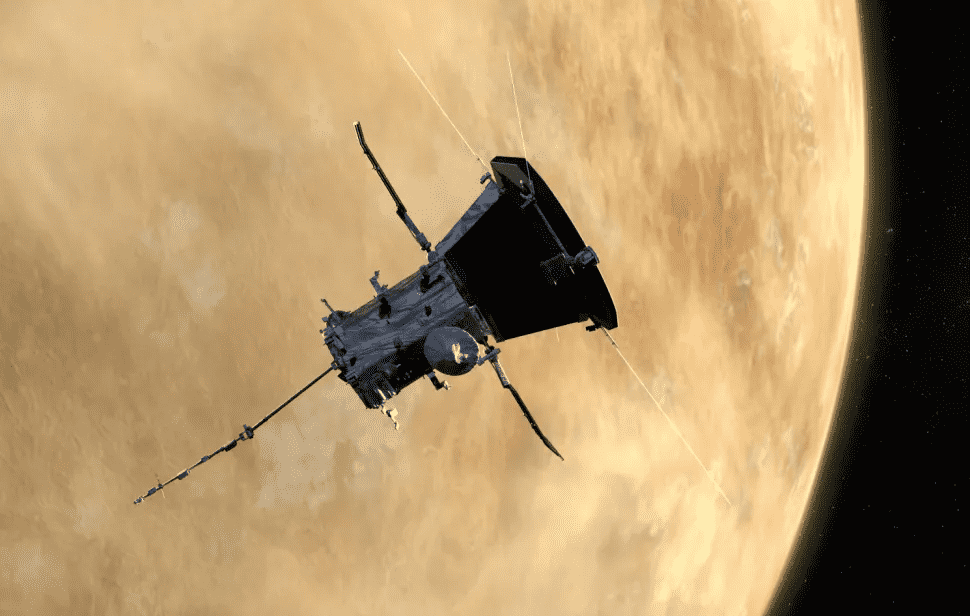Remember the Parker Solar Probe yesterday that was using Venus as a slingshot to get closer and closer to the Sun? Well, turns out that while probing around Venus, NASA’s Parker Solar Probe got so close that it was able to pick up some natural radio frequencies coming out of the planet’s ionosphere.
The probe came as close as 500 miles of Venus during a flyby when it picked up on these radio frequencies. Now radio emissions like these aren’t made to be audible and can’t be since they travel in a vacuum. However, after transposing them into the human hearing range, scientists were left with a weird mix mash of futuristic beeps and sounds that sound like they came out of a sci-fi movie.
Scientists now hope to use these radio emissions to somehow figure out the mysteries of Venus. The probe is fitted with a FIELDS instrument that is capable of picking out radio emissions in space.
You can listen to the audio in the video below. Make sure not to max out your volume.
According to the data collected by the Parker probe during its flyby, scientists were finally able to discover that the solar activity in Venus’s ionosphere changes as the Sun goes through its solar cycle. By the way, the ionosphere is the region of the upper atmosphere that gets blasted by the Sun’s radiation. This may also help scientists figure out just how Venus came to be the way it is today. According to findings, Venus was once just like Earth but now it is nothing more than a big ball of scorching heat and toxic air.
Many scientists at NASA were ecstatic to get the new data from the probe. Most of the studies about Venus have been going on for more than 30 years and it only took one small probe boy to achieve a breakthrough. The scientists at NASA’s Goddard Space Flight Center admitted that they have seen something similar in the past before when the Galileo orbiter explored Jupiter’s ionosphere.

Maybe Venus’s atmosphere changed because something changed the climate on the planet. Just like Earth’s climate is changing due to carbon dioxide emissions. Maybe there was life on Venus but it died out as the planet’s atmosphere turned for the worst.
Only time and more ‘probing’ will answer all questions scientists have.


